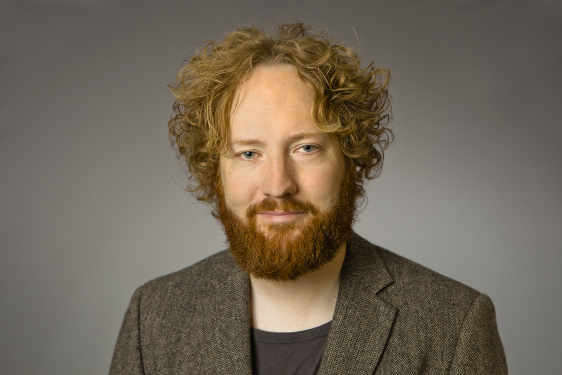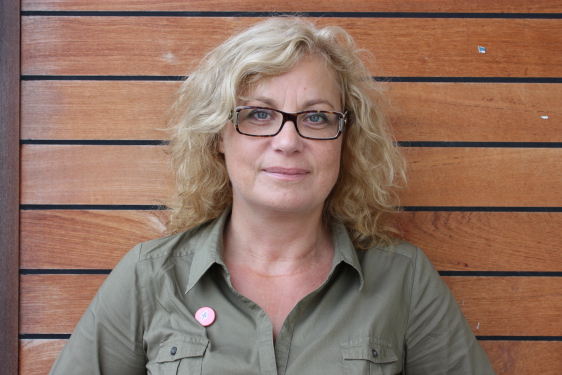NEWS New digital media is often described as a boundless force for democracy. That is how the arab spring became a twitter revolution. But parallel to the tributes to freedom exists a fear of control. Mapping out our habits on the internet is not just interesting for companies and government authorities – but also for parents.
 Libya, February 17, 2011, the first twenty-four hours after the revolution. Twitter is deluged with postings. The news reports that follow present the Arab Spring as a social media revolution. When Simon Lindgren, sociology professor at Umeå University, starts to study Twitter postings, who is the sender and who is the receiver, another image takes shape, an image he recognises from other sociological studies. The positions of power have not changed.
Libya, February 17, 2011, the first twenty-four hours after the revolution. Twitter is deluged with postings. The news reports that follow present the Arab Spring as a social media revolution. When Simon Lindgren, sociology professor at Umeå University, starts to study Twitter postings, who is the sender and who is the receiver, another image takes shape, an image he recognises from other sociological studies. The positions of power have not changed.
“The pattern shows the traditional news organisations, like CNN, BBC and Al Jazeera, in the centre. Some assertions have been made that this is exactly the type of media structures that Twitter had overthrown,” he describes.
Even if the Internet is said to make it possible for everyone to participate and make an impact, it is still the traditionally privieged groups that are heard.
“Since the computer geeks were involved in building the Internet, the notion exists that it is a kind of free zone, that it's very democratic, and that anyone can do anything. At the same time, you can't just go and say the Twitter revolution is a myth. It isn't as simple as that.”
Simon Lindgren's studies also show that the media's news coverage would not have been possible without the people who were on site in Libya sharing information. He believes that the pictures that currently circulate are far too simplistic. Instead he wants to go beyond the optimistic and pessimistic views in his research.
 While social media are praised in North Africa, their dangers are discussed when adults describe how new digital media affect children. In Umeå, at the Department of Applied Educational Science, Senior Lecturer Elza Dunkels conducts research about Internet risks and safety for children.
While social media are praised in North Africa, their dangers are discussed when adults describe how new digital media affect children. In Umeå, at the Department of Applied Educational Science, Senior Lecturer Elza Dunkels conducts research about Internet risks and safety for children.
“Parents often sidestep their own values when it comes to the Internet. They can suddenly consider violating their children's rights to protect them. However, very few would be willing to put a tape recorder under their child's bed or read their child's diary.”
She explains that many parents feel they must watch over their children to be good parents, for example, by checking the websites they have visited or putting the computer in a visible location. Two things, however, argue against this position. The first is that there is no proof that a child who is monitored would take fewer risks. The other is that most parents probably want their children to learn to act correctly even when no one is watching.
 Questions about monitoring and integrity are also something discussed a lot in regards to laws like FRA and the Data Retention Directive but also Internet giants like Facebook and Google. Per-Olof Ågren is a senior lecturer in informatics at Umeå and often participates in debates about new information technology.
Questions about monitoring and integrity are also something discussed a lot in regards to laws like FRA and the Data Retention Directive but also Internet giants like Facebook and Google. Per-Olof Ågren is a senior lecturer in informatics at Umeå and often participates in debates about new information technology.
“During the 1960's and the 70's we were afraid that authorities were gathering information about us. Today we supply data about ourselves without thinking about it. Many people therefore ask the question whether we can discuss integrity problems when we volunteer information. But today there are no equivalent substitutes to, for example, Google. Our personal data improves searches and therefore Google will always be best. The way I see it, we have no real choice today,” says Per-Olof Ågren.
In addition to violations of our integrity, Per-Olof Ågren also describes the risk of shifting purposes. Right now personal data is interesting because it can help fight crime or sell advertising. What happens when the same data becomes interesting for other purposes in the future? The only thing we actually know is that no one knows how all the data might be used.
Many adults also have difficulty understanding when children and teenager openly share their experiences in, for example, blogs. The biggest fear is that an adult might make sexual advances towards the child. At the same time 99 percent of rapes committed on children are perpetrated by someone the child should be able to trust – parents, step-parents, coaches. “What is dangerous is to abandon children, that they don't have anyone they can talk to. Because the only thing we know for sure is that socially vulnerable children without such support are easily sucked into the Internet,” says Elza Dunkels.
Her studies show, however, that most children are good at weeding out inappropriate attempts to make contact. They see them as similar to spam and most children she interviewed don't see the contact attempts as anything threatening, but rather something irritating.
The amount of spam and flood of information is a problem. How are we supposed be able to select information that is relevant from an inexhaustible source? Per-Olof Ågren speaks of a trend towards personalisation where companies want to make the choices easier for us.
“The more Internet companies know about their users the more they can customise data so we just get the most interesting matches when we perform a search,” says Per-Olof Ågren.
He also speculates about other possible applications, for example, that we wouldn't have to read newspaper articles that we aren't interested in. Why read about sports if we are only interested in culture?
“The individualising trend appeals to many people... especially extremists and fundamentalists who don't want to meet other people's world views,” he says.
He believes that filtering information is nothing that benefits a democratic society, but we tend to like it since it engages us personally.
“Our own choices form the basis for selection, but the choices are also reduced since the machines make choices for us. It is unbelievably comfortable and wouldn't be possible unless it were appreciated by users,” explains Per-Olof Ågren.
Parellell to the risks are also possibilities when new users get access to technology that may have the potential to break through previous boundaries. That is also why Simon Lindgren studies both political networks and those relating to popular culture on the Internet. The same technological aids used in North Africa are also used by girls interested in fashion.
“Many people dismiss young girls who blog about fashion, saying that it's nonsense, that they create their own subordination and reproduce problematic images of womanhood. But a somewhat utopian thought might be that they could use their knowledge to make serious changes in the world, since they have all the skills necessary,” he explains.
It is also important to investigate the interplay between what happens on and outside the Internet instead of describing them as two separate contexts. Elza Dunkels mentions how we draw a sharp line with regard to children and net bullying.
“Many people seem to think the Internet has opened the doors to all kinds of evil forms of expression. But the fact is that net bullying has more in common with other types of bullying than with the technology. Perhaps what is most disturbing is that we can now see behavior that used to be hidden. I believe that we can come closer to a solution to bullying in general by studying its mechanisms on the Internet,” says Elza Dunkels.
Elza Dunkels adds that net bullying isn't something unique to young people. It occurs among all ages and is most common among people between the ages of 25 and 30.
Simon Lindgren provides another example of how we see new digital media as a parallel world disconnected from our own lives.
“What happened in North Africa did not just happen in cyberspace but in physical environments where the digital was incorporated. We will live more and more in the intersection between what is happening online and offline. It isn't science fiction, but rather quite undramatic,” says Simon Lindgren.
He explains that people use mobile phone applications that were considered high tech just five or ten years ago to check their pulse nowadays. What attitude should we take towards this? Simon Lindgren returns to his previous argument. It is both about change and continuity, about having both a pessimistic and an optimistic approach.
“There is nothing that says that all power structures disappear just because we have this new medium. At the same time it offers us a counterforce and global community. We can talk back to the forces of power.”
Simon LindgrenElza DunkelsPer-Olof Ågren
Editor: Karin Wikman